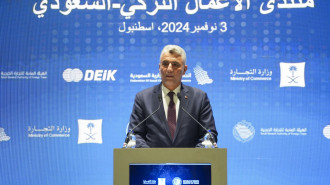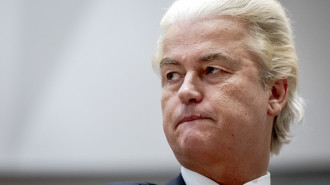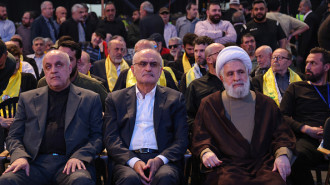After broad crackdown, Saudi moves to free some dissenters
Over the past three years Saudi Arabia detained hundreds it sees as dissenters - including activists like Loujain Al-Hathloul - but it has begun provisionally releasing some as it comes under US pressure.
In a broad clampdown under Crown Prince Mohammed bin Salman, the de facto ruler, the kingdom has moved against academics, clerics, journalists as well as prominent royal family members.
Following Hathloul's release on Wednesday, here is a list of other Saudis freed or set to be released:
Walid Fitaihi
Fitaihi, the founder of a prominent hospital in the Red Sea city of Jeddah and a motivational speaker hailed by his supporters as the "Deepak Chopra of the Middle East", was released in mid-2019 after nearly two years of detention.
But in a shock court ruling in December, the Harvard-educated doctor was sentenced to six years in jail on charges including obtaining US citizenship without official permission and tweeting in support of the 2011 Arab Spring uprisings.
However, Fitaihi, 56, will effectively serve no jail time after a court appeal, according to a source close to his family.
|
Last month, a Saudi appeals court upheld his conviction but reduced his six-year jail term by half and suspended a part of the remaining sentence, the source said.
Fitaihi and several members of his family still face a travel ban that bars them from leaving the kingdom.
Salah Al-Haider
Haider, the son of leading women's rights activist Aziza Al-Yousef, was detained in April 2019 and charged with terrorism-related crimes.
Haider, a dual US-Saudi national, was taken just days after his mother was provisionally freed from detention.
His mother was detained along with Loujain Al-Hathloul and other women campaigners just before Saudi Arabia lifted its decades-long ban on female drivers in June 2018.
Haider was released last week pending trial in the kingdom's anti-terrorism court and his next court hearing is set for March 8, according to Washington-based campaign group Freedom Initiative.
Bader Al-Ibrahim
Ibrahim, a Saudi-American writer and doctor, was also detained in April 2019 and charged with terrorism-related crimes.
He was provisionally released along with Haider last week. His next hearing in the anti-terrorism court is also set for March 8, according to Freedom Initiative.
The US State Department said it was "closely monitoring" the conditional release of Ibrahim and Haider.
Ali Al-Nimr, Dawood Al-Marhoon and Abdullah Al-Zaher
The trio from the minority Shia community were arrested as minors in 2012 on terrorism-related charges after they took part in anti-government protests during the Arab Spring uprisings.
On Sunday, their death sentences were commuted to 10 years in prison, the kingdom's Human Rights Commission (HRC) said.
The sentence includes the time already served and they are due to be released next year, the commission added.
The announcement comes after the HRC last April said the kingdom was ending the death penalty for those convicted of crimes committed while they were under 18.
Saudi Arabia has one of the world's highest rates of executions.
The reform, which followed a decision to abolish court-ordered floggings, was widely welcomed by campaigners.







 Follow the Middle East's top stories in English at The New Arab on Google News
Follow the Middle East's top stories in English at The New Arab on Google News


